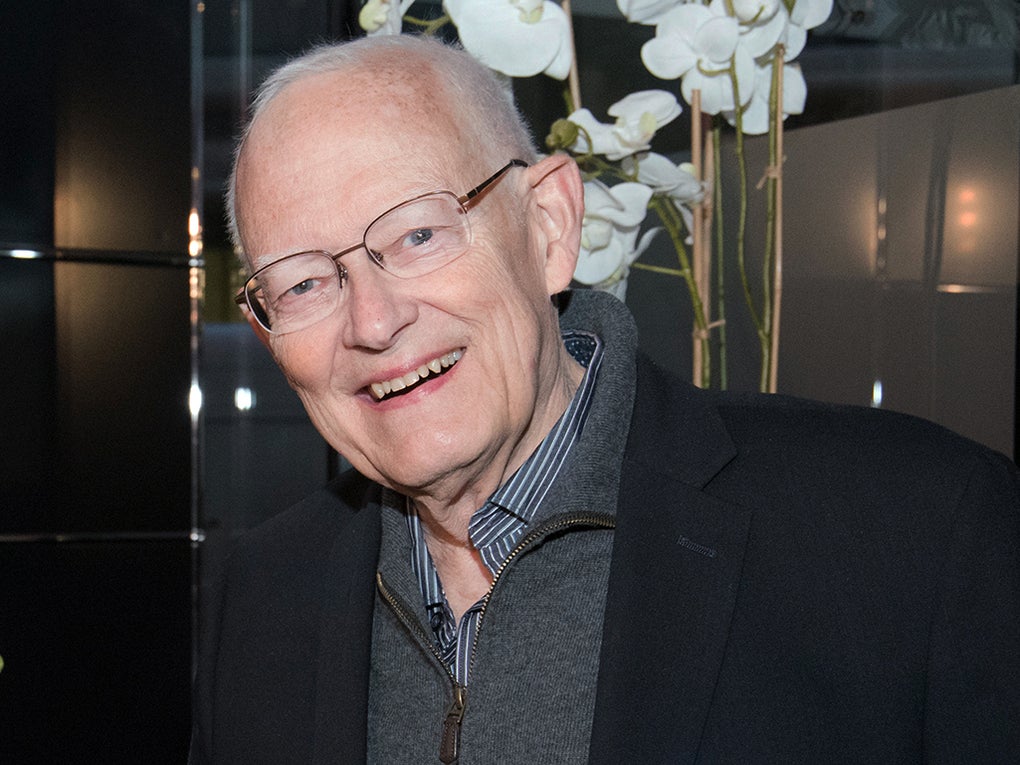
Mechtild Harf Research Grant becomes John Hansen Research Grant
New name for research program of the DKMS Stiftung Leben Spenden (Foundation for Giving Life) in honor of John Hansen.
The scholarships of the DKMS Stiftung Leben Spenden have been renamed John Hansen Research Grant - after the exceptional physician and foundation board member of many years John Hansen.
John A. Hansen, who passed away on 31 July 2019 at the age of 76, was an outstanding oncologist, an excellent immunogeneticist and an empathic and compassionate physician. As a long-standing member of the DKMS Stiftung Leben Spenden Foundation Board and the DKMS Medical Council he was deeply connected to the DKMS family. With his groundbreaking research, he made a significant contribution to increasing the efficacy and safety of blood stem cell and bone marrow transplants - giving numerous patients a second chance at life.
Out of appreciation and gratitude
"We are deeply grateful for what John Hansen has accomplished as a physician, researcher and person," says Dr. Elke Neujahr, chairperson of the DKMS management board. "It was a great honor and a gift for us to have his personality and expertise on our side in the fight against blood cancer. We will miss him deeply and aim to continue our work in his spirit".
Out of appreciation and gratitude the DKMS Stiftung Leben Spenden renamed its research program, with which it promotes highly talented junior scientists every year: The Mechtild Harf Research Grant is now called the John Hansen Research Grant.
John A. Hansen – Pioneer and multiple lifesaver
At the Fred Hutchinson Cancer Research Center in Seattle, Hansen was one of the pioneers along with Nobel Prize winner E.D. Thomas, who developed stem cell transplantation as a therapy for blood cancers and established it worldwide. Hansen led the Human Immunogenetics Department of the Clinical Research Division at the Fred Hutchinson Cancer Research Center and was Professor at the University of Washington School of Medicine.
One of the questions he dealt with throughout his life was: Which HLA characteristics (also: tissue characteristics) have to match in order for the donor's stem cells to be compatible with those of the recipient and for a rejection reaction to be prevented after a stem cell transplant? Together with his team, Hansen developed innovative methods against what is known as Graft-versus-Host-Disease. He also made a decisive contribution to increasing the number of potential stem cell donors that could be considered for a patient by further developing screening techniques.
"What John Hansen has sown will also shape and inspire the work of future generations," explains Marcel van den Brink, chairman of the DKMS Stiftung Leben Spenden. "It is therefore our heartfelt wish to name our scholarships for research in the field of stem cell therapy after him.” Hansen's achievements in haematopoietic stem cell transplantation are extraordinary. "There are probably few physicians and scientists, who saved so many lives with their work during their lifetime – and beyond that – as John Hansen has done.”